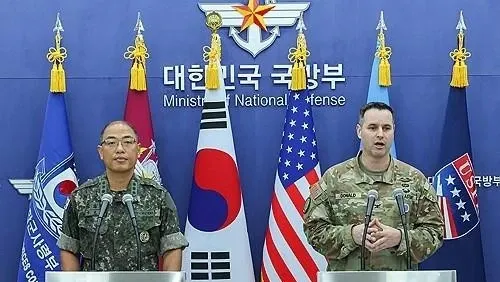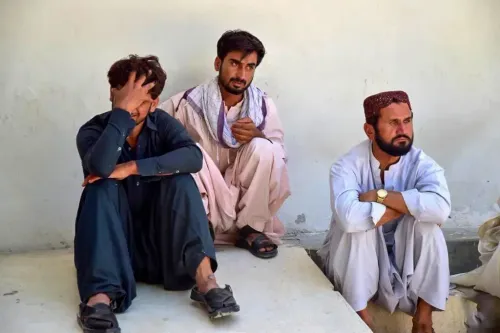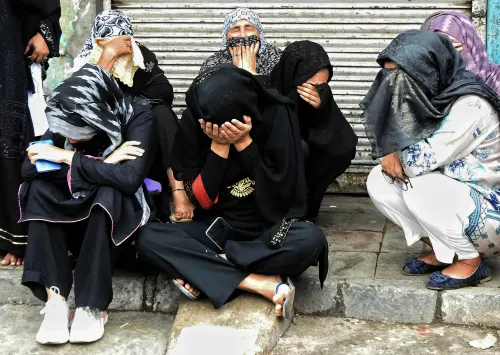What Measures is North Korea Taking Against Planned South Korea-US Military Exercise?

Synopsis
Key Takeaways
- North Korea warns of self-defence response to provocations.
- The upcoming UFS exercise is viewed as a military threat by Pyongyang.
- Adjustments to the UFS reflect attempts to improve inter-Korean relations.
- The statement from North Korea's Defence Minister signifies escalating tensions.
- The joint drills are characterized as defensive measures by South Korea.
Seoul, Aug 11 (NationPress) North Korea's Defence Minister No Kwang-chol issued a stern warning that Pyongyang will invoke its right to self-defence if provoked, condemning a forthcoming extensive military exercise between South Korea and the United States.
This caution was articulated just a week ahead of the scheduled Ulchi Freedom Shield (UFS) exercise, set to take place from August 18-28, as reported by Yonhap from the Korean Central News Agency (KCNA).
“We vehemently denounce the U.S. and the ROK for their provocative actions, which clearly indicate a stance of military confrontation with the DPRK,” the Defence Minister stated, accusing the allies of destabilizing the security conditions on the Korean Peninsula and forewarning of “negative repercussions.”
North Korea’s military is poised to respond to the war drills with a decisive and comprehensive counteraction, asserting its sovereign right to self-defence in the event of any provocations that cross established boundaries.
The DPRK, which stands for the Democratic People's Republic of Korea, perceives the UFS as both a direct military provocation and a significant threat that could escalate the region's security unpredictability. The Minister warned of a potential boomerang effect, which could compromise the safety of South Korea and the U.S.
He also characterized the UFS as the primary factor contributing to the increasingly negative dynamics on the peninsula, emphasizing that it is the military's absolute duty to counteract hostile actions from enemy states and maintain regional peace.
This year’s UFS has seen adjustments, with approximately 20 of the initially planned 40 drills deferred to the following month. This decision was attributed to ongoing heatwaves, flood damage, and Seoul's apparent attempt to foster improved relations with North Korea.
The adjustment of the UFS has been a focal point in inter-Korean relations, especially after Kim Yo-jong, the influential sister of North Korean leader Kim Jong-un, criticized the exercise, likening the current administration to its hardline predecessor.
Despite this, the Defence Minister's statement on Monday did not reference the partial postponement.
Koo Byoung-sam, spokesperson for South Korea's unification ministry, noted that this year's warning from the North's Defence Minister marks an escalation compared to last year when a similar statement was issued by the ministry's spokesperson.
Yet, the tone of this year’s statement appears more measured, focusing on articulating the regime's perspective rather than making overt military threats, according to Koo.
The unification ministry spokesperson reiterated that the joint exercises are standard training of a strictly defensive nature, aimed at preventing war and ensuring peace.
“Moving forward, the government intends to consistently and calmly promote cooperation for peace on the Korean Peninsula,” he added.









